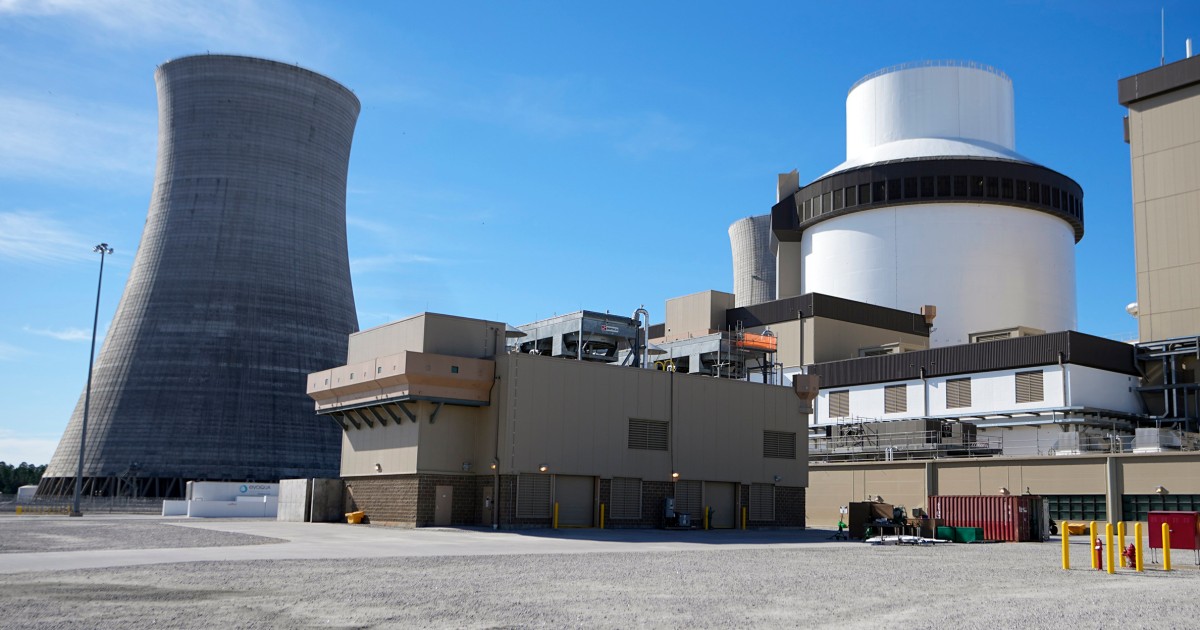- cross-posted to:
- [email protected]
- cross-posted to:
- [email protected]
First U.S. nuclear reactor built from scratch in decades enters commercial operation in Georgia::ATLANTA — A new reactor at a nuclear power plant in Georgia has entered commercial operation, becoming the first new American reactor built from scratch in decades.



Yes nuclear power plants are very expensive. But the energy density is phenomenal.
Energetic armortisation is far quicker on a nuclear plant than on solar panels.
And the argument of subsidies is usually a fake one, since governments also pour millions into renewable energies.
Broken down to lifetime cost to the cost of comparable technologies, nuclear is still on the same level as solar and wind.
Since I am from Germany, and German sources might not be ideal to share, let me explain it this way: People are not stupid. They will never choose the financially unwise option, if the other one would seriously be the better one.
Can you find any recent analysis that supports your claim that nuclear costs are at the same level as solar?
The only one I’ve seen suggest this was from a nuclear industry lobby group, and it inflated the costs or solar by insane amounts.
In Australia this is a bit of a hot topic and all impartial estimates suggest that nuclear will not get close to renewables in any way, even taking into account storage and grid costs.
In the 10 years since this single reactor was built, one of our states has transitioned to almost 100% renewables. Wholesale costs have plummeted, but renewable projects are still profitable in the market. I was involved in a reactor project in a western nation some time ago (it’s still being completed unsurprisingly), and the lock-in wholesale price to support that project was simply extortionate. Solar generation prices are a whole magnitude smaller.
This is a German source that incorporates many studies and presents their results. Some agree with my statement, some with yours. But fact is, that the financial difference is very small.
https://www.bundestag.de/resource/blob/887090/1867659c1d4edcc0e32cb093ab073767/WD-5-005-22-pdf-data.pdf
Page 23 for example suggests my statement.
On page 32 you can see the development that suggests that you are right.
But considering the costs for the expansion of the energy grid, battery storage systems, and the rising production costs of everything, I believe Nuclear to be the cheaper option and the far more reliable one.
I see you’ve never been to the U.S.
Ok. Valid argument.
But while Germany quit nuclear power, the rest reinforced their standpoint.
Thousands of scientists from different countries all agreed upon nuclear power to be a reasonable source of energy. Even a Japan is still going forward with nuclear power. It is only Germany, which made an emotional choice, Merkel wanted to please the masses. And here we are now. Burning coal, as if we were thrown back into the industrial time, forced to use primitive methods to produce energy.
People do often act stupid, but you are seeing it from what I consider to be an incomplete perspective. Nuclear could be financially unwise overall, but someone would still get a payday. That 17B over budget wasn’t burned and unmade, it went into the pockets of the people organizing and building the power plant.
All this to say, the huge majority of the people involved in making the power plant a reality weren’t motivated by the efficiency of the power production on a cost basis. Most of them were probably making more money while it was still being subsidized, planned, and built. And while I think subsidies are generally useful and good, they can be a vector of financial abuse when it comes to unprofitable industries.
Lastly “lifetime cost” is a bit of a useless metric when the majority of that lifetime comes too late. No point to a power source that will cleanly produce power after it has meaningfully contributed to pushing us over the edge and past the breaking point for a climate that can support agriculture as we know it. There isn’t enough time or margin for error in emissions left available to build all the nuclear plants needed to meet energy demands.